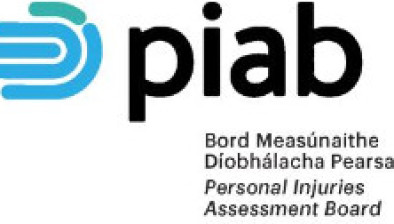High Court: Nightclub owners entitled to set-off debt owed to security firm which gave indemnity for personal injury claims
A company which operates a nightclub in Dublin has successfully argued that it is entitled to set-off €52,000 owed to a security firm, in circumstances where the firm gave an indemnity for personal injury claims arising from acts, negligence, or failures in its provision of security services.

About this case:
- Citation:[2019] IEHC 152
- Judgment:
- Court:High Court
- Judge:Mr Justice Garrett Simons
In circumstances where there were four pending personal injury claims against the nightclub which alleged negligence and assault on the part of the security firms employees, Mr Justice Garrett Simons said the a “just estimate” of the contingencies would exceed the value of the debt.
Background
P&B Security Services Limited (In Liquidation) previously provided security services to bars and night clubs.
Triglen Holdings Limited (trading as Russell Court Hotel) operates a hotel and night club in Dublin, and had availed of P&B’s security services prior to the latter company entering into liquidation.
The within proceedings were instituted before the Circuit Court in or about 14 October 2015,
P&B’s liquidator sought to recover €51,435.78 from Triglen in respect of the provision of security services.
Triglen maintained it was entitled to set-off this debt against monies which it holds pursuant to an indemnity given by P&B. The indemnity was for personal injury claims brought against Triglen wherein the injuries have been claimed to result from acts, negligence and/or failures on the part of P&B in the provision of security services at Triglen’s hotel.
The indemnity
On 1 May 2010, the director of P&B signed a letter giving an indemnity. The director stated that this had been requested by Triglen, and that Russell Court Hotel was P&B’s largest customer so it wished to retain the contract.
Counsel on behalf of P&B’s Liquidator sought to suggest that the indemnity was unusual and that it left the company open to an open-ended liability, however, the authenticity or validity of the letter of 1 May 2010 was not challenged.
On behalf of Triglen, it was submitted that it had at least four personal injury claims pending against it which alleged acts of negligence and assault on the part of P&B’s employees. The pleadings in these proceedings were provided to the court.
It was suggested that a case for personal injury had recently been settled for €25,000, none of which was convered by the hotel’s insurers. If each of the four pending claims had a similar value, this could result in liability of €100,000.
Just estimate
Mr Justice Simons said that the provisions of the Companies Act 2014 were the starting point in this case, in particular section 619 provides that the bankruptcy rules apply in the winding up of an insolvent company. Mr Justice Simons then considered the rules in relation to set-off in the Bankruptcy Act 1998 (as amended).
Mr Justice Simons also considered the judgment in the House of Lords in Stein v. Blake [1996] A.C. 243, which discussed the practical operation of the equivalent provision under the then English legislation.
Applying the principles to the present case, Mr Justice Simons said it was necessary to make a “just estimate” of the value of Triglen’s contingent claim.
Counsel on behalf of P&B did not challenge the evidence to the effect that the value of the pending claims could be greater than €100,000, and Mr Justice Simons said that in all the circumstances a “just estimate” of the contingencies would exceed the value of the €51,435.78 debt as claimed against Triglen.
Absence of mutuality?
The principal argument advanced on behalf of P&B against the asserted set-off was that there was an absence of mutuality, and that P&B had assumed the role of an insurer.
It was further submitted that whereas the debt to P&B had been incurred by Triglen in its capacity as a customer or client availing of the security services, the indemnity provided by P&B had a different character. P&B had provided both security services and a form of insurance to Triglen. It was said that P&B was acting in two different capacities, and this destroyed any mutuality.
Reliance was placed on Donnelly, The Law of Credit and Security (2nd edition, 2015), and on the judgment in Dunnes Stores v. McCann [2017] IEHC 700. Mr Justice Simons considered Donnelly, and was satisfied that none of the examples suggested a party in the role of insurer could not rely on set-off.
Mr Justice Simons said that in any event, to characterise the role of P&B as one of an insurer went too far.
He also said there was sufficient nexus between (i) the underlying contract for the provision of security services, and (ii) the indemnity, to conclude that the debts are mutual.
Stating that he would hear counsel as to the precise form of order, Mr Justice Simons said he was of the view was that the only order required was one dismissing P&B’s application for liberty to enter final judgment, on the basis that its claim was less than the amount which Triglen was entitled to set-off.
- by Seosamh Gráinséir for Irish Legal News








